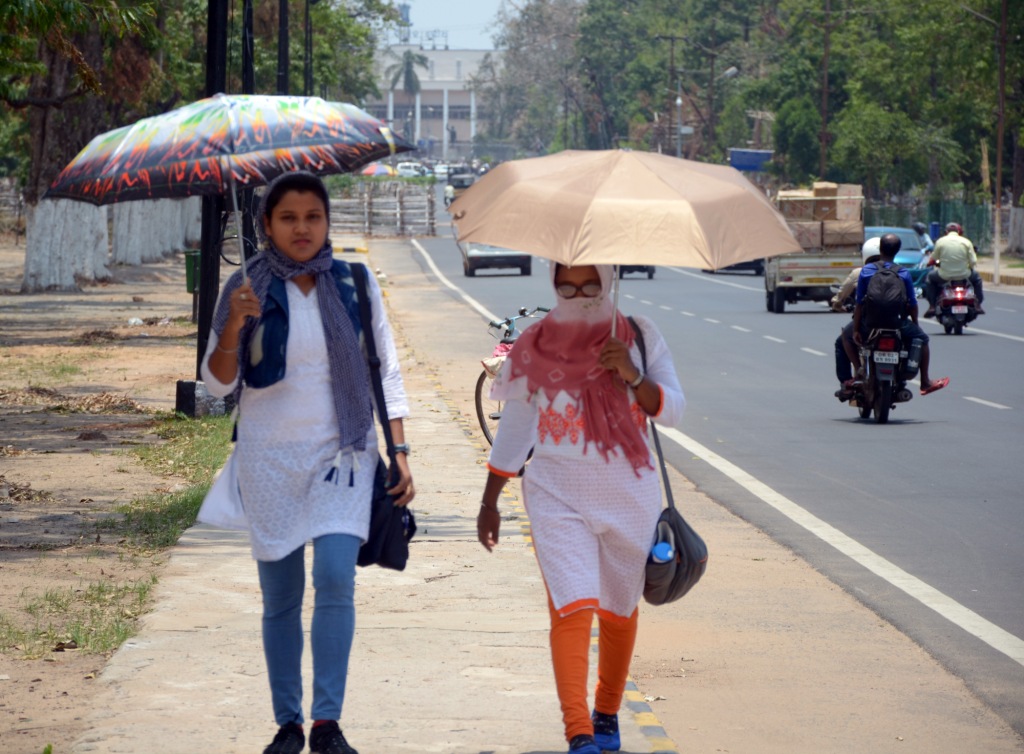Bhubaneswar: As IMD issued heat wave warning from April 13 to 15, Odisha is likely to turn into a virtual cauldron with mercury surpassing 40 degrees Celsius in several districts of the state. Hence, these are some of the essential tips for protecting yourself from the scorching rays of the Sun.
Stay hydrated: Drinking plenty of water is the most crucial in preventing heat-related illnesses. Dehydration is a common problem during heat waves, as the body loses fluids through sweat. Make sure to drink water regularly throughout the day, even if you don’t feel thirsty. Avoid excessive consumption of alcohol and caffeine, as they can dehydrate your body.
Seek shade and stay indoors: During the peak hours of heat, typically from 10 am to 4 pm, it’s best to stay indoors in air-conditioned or well-ventilated spaces. If you need to be outside, seek shade and wear light-coloured, loose-fitting clothes to protect yourself from direct sunlight. Use umbrellas, hats, and sunglasses to shield yourself from the blistering Sun.
Use cooling methods: Keep your body cool by taking cool showers or baths, or using damp towels on your neck, face, and arms. Use fans and air conditioning to maintain a comfortable indoor temperature. If you don’t have access to air conditioning, visit air-conditioned public places such as shopping malls, libraries, or community centres to stay cool.
Check on vulnerable individuals: Keep an eye on elderly people, young children, pregnant women, and those with chronic health conditions, as they are more vulnerable to heat-related illnesses. Offer them water, check on their well-being, and ensure they are staying hydrated.
Be mindful of your activities: Avoid strenuous outdoor activities during extreme heat. If you must exercise or work outdoors, try to do it during the cooler hours of the day, such as early morning or late evening. Take frequent breaks, rest in shaded areas, and listen to your body for any signs of heat exhaustion or heatstroke.
Stay informed: Stay updated with the weather forecast and heat advisories issued by IMD. Pay attention to heat-related warnings and follow the advice provided by public health officials. Be aware of the signs and symptoms of heat-related illnesses, such as heat cramps, heat exhaustion, and heatstroke, and know how to respond in case of an emergency.
Take care of your pets: Remember that pets are also susceptible to heat-related illnesses. Provide them with ample water and a shaded area, and avoid taking them for walks during the hottest hours of the day. Never leave your pet in a parked car, even for a short time, as a parked car can quickly become a greenhouse chamber due to the extreme trapping of heat.
Notably, heat waves are prolonged periods of extreme heat, often accompanied by high humidity that can have serious health implications if not properly managed.
By following these essential tips, you can protect yourself and your loved ones from the dangers of heat waves. If someone is severely affected, we recommend seeking expert help or contacting your doctors at the earliest.
PNN
